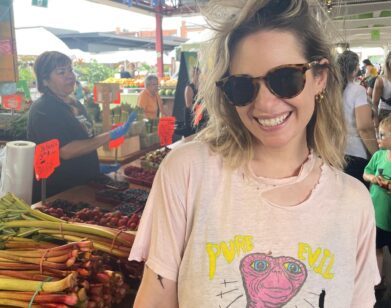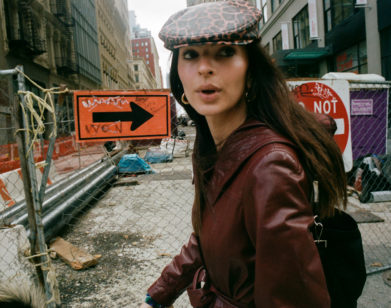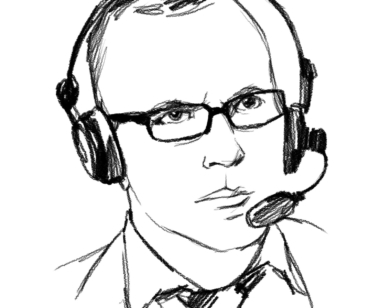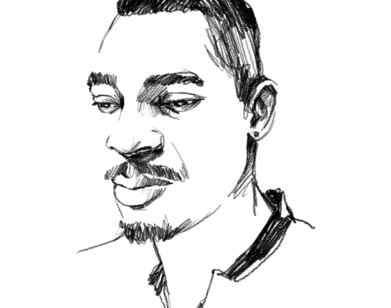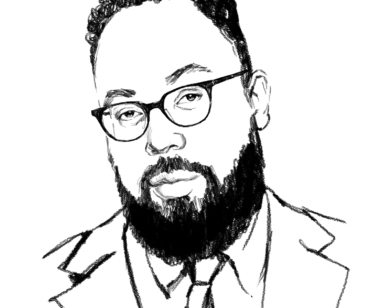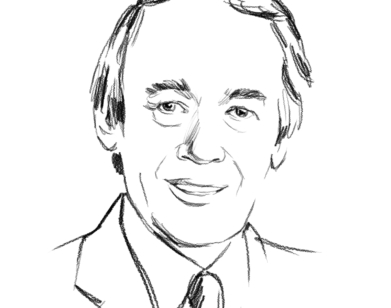Ask a Sane Person: Jia Tolentino on Practicing the Discipline of Hope
For the past decade, Jia Tolentino has been writing feverishly on the front lines of cultural warzones. As a staff writer at The New Yorker, she has revitalized the art of the essay for a whole new generation, tackling subjects close to her heart and far into the societal noise: religion, drugs, Supreme Court hearings. Her masterpiece debut collection, Trick Mirror, came out last year, and arrives in paperback on July 12. Like the rest of us, her mind has been spinning with strange thoughts, hopes, and terrors during this unprecedented time. Unlike many of us, she’s also about to give birth to her first child.
———
INTERVIEW: Where are you and how long have you been isolating?
JIA TOLENTINO: I’m in upstate New York, where I’ve been since the middle of March. Friends have been using our apartment in Brooklyn to work and to quarantine, and my boyfriend is past ready to move up here for good. (We bought a house in Saugerties after I sold my book, falling into that particular stratum of privilege where we could make a down payment in the woods but never in the city.) I love it here—I vote here, we’re friends with our neighbors, we turned our mailbox into a free mask box, there were black bears eating the compost in the yard the other week, etc.—but I’ve been missing Brooklyn. We’ve mostly been in full isolation, broken mainly for the grocery store, and then for protests in Hudson Valley, which have been heartening and widespread and mostly family-friendly. It was nice when I went back to the city for a doctor’s appointment, to go to a rally and feel that sense of warmth and comfort that comes from hearing a huge crowd of people yell “SUCK MY DICK” at the police.
INTERVIEW: What has this pandemic confirmed or reinforced about your view of society?
TOLENTINO: That capitalist individualism has turned into a death cult; that the internet is a weak substitute for physical presence; that this country criminally undervalues its most important people and its most important forms of labor; that we’re incentivized through online mechanisms to value the representation of something (like justice) over the thing itself; that most of us hold more unknown potential, more negative capability, than we’re accustomed to accessing; that the material conditions of life in America are constructed and maintained by those best set up to exploit them; and that the way we live is not inevitable at all.
INTERVIEW: What has this pandemic altered about your view of society?
TOLENTINO: It has decreased my interest in improving institutions from the inside, and it has drastically altered my sense of the possible rate of change.
INTERVIEW: What is the worst-case scenario for the future?
TOLENTINO: Melted permafrost, dead coral reefs, no more birds, whales engorged with plastic, much of the world’s population living as refugees from one thing or another, permanently disturbed weather, semi-constant natural disaster, cause and effect disrupted for all but the wealthiest—scarcity increasing the rationale for selfishness rather than for cooperation, and also Twitter still exists.
INTERVIEW: What good can come out of this lockdown? Are there any reasons to hope?
TOLENTINO: I hope ego death becomes a more commonplace experience. I hope the absence of stability and predictability revives our political imagination, helps more of us inhabit the original position when we consider the kind of world that would make us excited and proud to live in.
INTERVIEW: What has been your daily routine during this time?
TOLENTINO: More sober than I would have expected, because I’m eight months pregnant. (Technically I have a “high-risk” pregnancy—I get high blood pressure, which can also be a problem with COVID—but my actual experience has mostly been uncomplicated and wonderful; I thought I would feel invaded, and in fact I feel capacious, easy, sweet, chill.) I’ve been very conscious of how different lockdown would be if I had children or other caregiving obligations. I’ve tried to keep my needs light to match my unencumbered situation—I have tried to be like a summer afternoon. Most days I work, do yoga, walk the dog, eat a lot, cook, read, text too much, think about my friends. In March, I decided to make a donation for every day that I’m still getting a paycheck. I’ve kept pleasantly busy—one of the upsides of having normal work and travel and social life off the table is that it’s at least been much easier to volunteer my time.
INTERVIEW: Describe the current state of your hair?
TOLENTINO: A blonde ponytail, split ends on the last inch, four months’ worth of black quarantine roots.
INTERVIEW: On a scale of 1 to 10, what is your level of panic about the current state of the world?
TOLENTINO: Panic is not really in my chemical repertoire, which is mostly nice but sometimes feels pathological—like, this winter, this screaming dude on Myrtle Avenue threw a huge metal trash can directly at me (he was trying to fight another guy who was sprinting down the sidewalk), and I very narrowly dodged it and then a full block later was like, “Wait, what?”
But what are the things that make people panic? A sense of emergency, of unsustainability, of escalating harm and violence, of impending and irrevocable loss. That is definitely the backdrop. The already vast amount of human suffering in this pandemic is about to skyrocket as employment and housing protections are lifted; we’re going to see racial and economic inequality reinscribed so painfully with these huge disparities in the pandemic experiences of school-age children. The needless death will continue for months, all these incremental gains that people have struggled their whole lives to claim have been wiped out in a single season, and in the meantime Joe Biden is the Democratic nominee.
I guess I evaluated my level of world-panic a lot when I was thinking about possibly having children, and where I landed is still where I am. I don’t think the future is going to be good. I don’t think there’s an ethical justification for having kids in a world that’s accelerating in these directions. But I am committed to the idea that the world can be better, and I have some amount of faith that being human, being able to love, is still an untouchably and unpredictably generative thing—worthwhile, across unknown contexts, in and of itself.
INTERVIEW: Do you think there is hope for true racial equality in the United States? What do you think is the first step in that goal?
TOLENTINO: It depends on what “true” means—I don’t know if a country founded on the narrative of liberty and the practice of racist exploitation can remake itself in the however many years we have left before humans are burned off the Earth. But this is the horizon we have to move toward, and the only way to get there is a full-throated repudiation of capitalism as we know it.
INTERVIEW: How can America work to ensure more equality and justice on a day-to-day level?
TOLENTINO: I feel a little sheepish writing this—it seems so clear, and I feel that I am stupid—but at a policy level: slashing the military budget and police budgets; really taxing inheritances; really taxing corporations; instituting a massive wealth tax—and then using that money to fund public schools, public colleges, public transit, universal health care, affordable housing, subsidized parental leave and care for children and the elderly; a higher minimum wage. In order to get there we need to restore voting rights—reverse court decisions on voter suppression, enfranchise incarcerated people, including felons. But on an individual level, I’ve been thinking about what it means to normalize the everyday surrendering of advantage—to put an ideology of equality in practice at a time when it’s obvious that voting once a year or whatever is not going to be enough. I think the American obsession with symbolic freedom has to be traded for a desire for actual freedom: the freedom to get sick without knowing it could bankrupt you, the freedom for your peers to live life without fearing they’ll be killed by police. The dream of collective well-being has to outweigh, day-to-day, the dream of individual success.
INTERVIEW: Do you think protests are effective tools for changing the system? How does it make a difference in the long term?
TOLENTINO: Protests work! Riots work! As Martin Luther King, Jr. said in the late 1960s, “Dissenters tell the complacent majority that the time has come when further evasion of social responsibility in a turbulent world will court disaster and death.” Or, as Cardi B said recently, “Seeing people looting, going extremely outraged, you know, it makes me feel like yes, finally, finally! Motherfuckers going to hear us now.” Nothing important will ever be won without serious disruption. I appreciate the way “looting”—i.e. getting something for nothing, a behavior practiced with impunity by the wealthy—always illuminates who cares more about property than about people. We wouldn’t have the Civil Rights Act, the Voting Rights Act, the idea of a workweek, whatever, without people shutting down their workplaces and streets.
These systems are also so all-encompassing that they will never be overhauled in the immediate aftermath of an eruption. But protests shape local politics and national opinion. They are individually radicalizing: they instantiate solidarity at a physical, instinctive level, in some cases before solidarity is an intellectual priority or political practice. And these radicalizing moments accumulate. The momentum of the past month—the fact that public support for the Black Lives Matter movement has increased faster in recent weeks than it ever has for almost anything or anyone else—builds on so much work that’s been done before.
INTERVIEW: How do you personally channel your anger? Do you find anger to be a useful emotion?
TOLENTINO: I am always angry in the abstract, I think, but I am not often angry in a way that feels personal. There has to be a difference, neurotransmitter-wise, between anger that comes from caring about something and anger that comes from the swampier motivations, spite or hatred—the former feels necessary and livable to me and the latter feels really bad.
INTERVIEW: Who are the young leaders of the moment that you are inspired by?
TOLENTINO: A colleague alerted me to the Minnesota Teen Activists; I’m awed by their confidence. It will be thrilling to see Nikil Saval, Jabari Brisport, and Jamaal Bowman take public office. Most of all, I’m inspired by people who are organizing direct aid—housing for trans people, groceries for immigrants who don’t qualify for pandemic relief, travel for people who need abortions in this maze of new restrictions, food and supplies and medical care and bail for protestors.
INTERVIEW: What’s the next step after protests in the streets? Where does the righteous rage go?
TOLENTINO: Though I feel hypocritical saying this, knowing that I can’t use my body right now the way I would normally like to, I think we should stay in the streets for as long as possible, as often as possible, as disruptively as possible. Even peaceful protest is pretty easy for elected officials to ignore. The people setting the best example right now are long-term movement workers, who know how to integrate righteous rage into a life that includes joy and pleasure and lightness—organizers know how to rest when they need to without ever leaving the fight.
INTERVIEW: Do you work best alone or in a group? Can you protest from home?
TOLENTINO: I think you can do plenty from home, especially if you have any kind of capital. But you can’t really hold weight for someone remotely; you can’t relieve them of their burden and take it up as your own in the same way. I work best alone, if we’re talking about writing. But I’ve also been really sick of my own brain for a while now, and in quarantine I’ve been aware of the intellectual stagnation that comes when you stop physically seeking out and experiencing new things. There’s a loss that comes from not meeting strangers, not doing things just for the hell of doing them, not having everyday avenues of discovery and surprise.
INTERVIEW: Americans tend to find the topic of race uncomfortable. How do we start the conversation and address it directly?
TOLENTINO: I think it’s more like white Americans find the topic of race uncomfortable. Or maybe that people who are racist, or who are complicit with racism, find the topic of racism uncomfortable. White people who actually understand race never resort to instinctive self-exoneration. I hope that a lot more white people and non-Black people of color have recently considered: “Okay, do you have close, lasting relationships with black people?” And if the answer is no—or if the answer is yes, but the topic feels uncomfortable—that is an on-ramp to a lot of structures and choices that people don’t like to consider racist but definitely are.
I always tend toward the idea that discomfort is productive—it is for me—but racial discomfort curdles if it remains centered on whiteness. I’ve wondered if the unproductive idea of colorblindness is shifting to an unproductive idea of white self-analysis. Like, I think there’s some portion of white people who are going from awkwardly saying “African-American” to awkwardly saying “BIPOC,” people who were “taught to treat everyone equally” and are now being taught to verbally negotiate their own whiteness better—but who are still enmeshed in white communities, their affective habits altered a little but their enacted priorities still the same.
I’m also suspicious of the way that Not Being Racist is a project that people seem to be approaching like boot camp. To deepen your understanding of race, of this country, should make you feel like the world is opening up, like you’re dissolving into the immensity of history and the present rather than being more uncomfortably visible to yourself. Reading more Black writers isn’t like taking medicine. People ought to seek out the genuine pleasure of decentering themselves, and read fiction and history alongside these popular anti-racist manuals, and not feel like they need to calibrate their precise degree of guilt and goodness all the time.
INTERVIEW: What thinkers have you taken comfort in of late and why?
TOLENTINO: Like a lot of people, I’ve gone back and reread Angela Davis. I’ve been grateful for Mariame Kaba, for the abolitionists who have been laying critical groundwork for a long time. I had never read The End of Policing by Alex Vitale, which Verso put up for free and is now available for $3, and I had never read The First Civil Right by Naomi Murakawa, which is essential on the way liberal visions of race and procedural reform helped build the carceral state. I’ve been so thankful for Jamelle Bouie and Keeanga-Yamahtta Taylor, the depth of scholarship behind every sentence they write at the Times and the New Yorker. Keeanga’s books, From #BlackLivesMatter to Black Liberation and How We Get Free, have also been grounding rereads for me.
But I’ve taken the most comfort in quarantine in reading fiction. On the day of George Floyd’s funeral, I wanted to feel closer to Houston, so I read Memorial, by Bryan Washington. I also loved the Cazalet Chronicles by Elizabeth Jane Howard, a five-book series with horrible covers that has fallen out of print; these books are due for a revival and a mini-Ferrante craze, I think.
INTERVIEW: If 2020 were a song, which song would it be?
TOLENTINO: A total lack of music, I think.
INTERVIEW: Where did we go wrong? Like, what was the exact moment?
TOLENTINO: I don’t mean to be glib, but when the colonists laid claim to Native American land.
INTERVIEW: Which (admittedly totally unqualified) celebrity would you trust with the planet’s future?
TOLENTINO: I’m pretty anti-celebrity in general. I admire and respect a lot of people, but why would you ever idolize anyone? Let alone someone you don’t know, who has been made known to you through an inherently distortive institution, and thus can’t exactly be known anyway? That being said, I’ll say Danny DeVito solely based on his “Antonin Scalia retire bitch” tweet.
INTERVIEW: If you could stop time at one particular moment in your life, which moment would it be?
TOLENTINO: There are moments in quarantine when I’ve felt paralyzed by luck—to have sunlight and quiet, to have trees outside my window, to have my health and my friends and my family, to get to write for a living, to get to wake up and go to sleep every day with a huge dog and a person I love. But I would never pause time in 2020. I guess my real answer is some variant of 3 a.m. and dancing. I’m picturing one night on the beach in the middle of nowhere, with lightning cracking from one side of the horizon to another, just before the speakers short-circuited in the rain.
INTERVIEW: What’s one skill we should all learn while in quarantine?
TOLENTINO: How to make someone feel loved from a distance.
INTERVIEW: What prevents you from giving up hope in the human race?
TOLENTINO: I don’t feel that I have the right to consider giving up hope. To do so would mean abandoning or failing to recognize the work that’s being done—the strikes that are being organized, the doctors and nurses who are keeping people alive and fighting to get their patients out of prison, the millions of people who have had to risk their lives and go to work in the pandemic regardless of whether they have hope or not. I appreciate Mariame Kaba’s idea that hope is a discipline. It’s a choice—it can’t be a matter of fluctuating affect, whatever viral news story or TikTok gave you hope in people or took it away. In general, I try to expect nothing and hope that everything is possible. I want the courage to need very little and demand a lot.
INTERVIEW: Who should be the next president of the United States?
TOLENTINO: Bernie, of course. But now, unfortunately, when I think about the presidential election, my brain starts leaking out of my ears.


